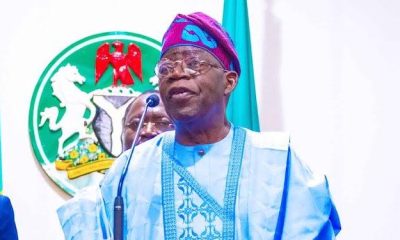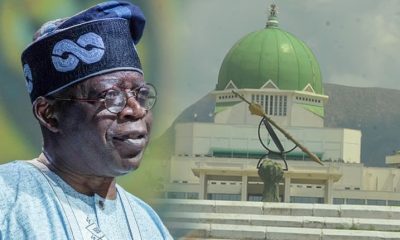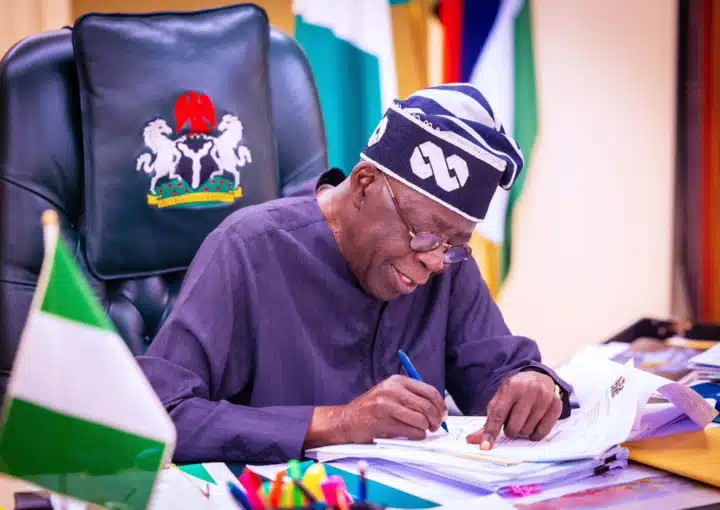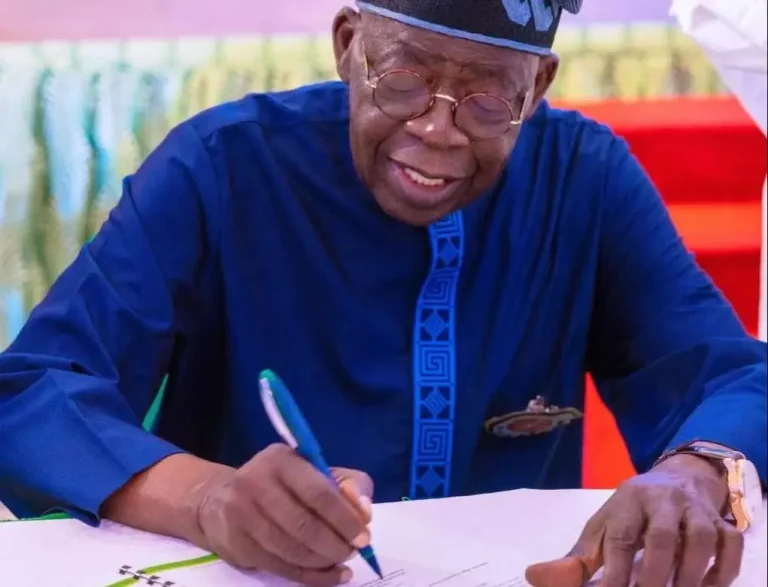Special Features
Life Beyond Subsidy: Easing The Pains Of The Nigerian Masses
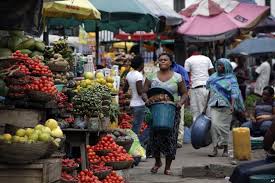
For decades, the topic of subsidy in Nigeria has been a contentious issue, eliciting heated debates and causing economic ripples. The subsidy regime, primarily focused on petroleum products, has long been perceived as a means to alleviate the burden on the masses. However, recent developments and changing global dynamics call for a reevaluation of this approach.
With the debate over its eventual removal now put to bed, this article aims to explore alternative strategies that will not only ease the pains of the Nigerian masses but also foster sustainable economic empowerment.
EDITOR’S PICKS
The Subsidy Quagmire:
Subsidies, despite their initial intent, have not delivered the desired outcomes for the targeted population. Instead, they have become a breeding ground for corruption, inefficiency, and economic distortions among the privileged few oil marketers and their enablers. The significant financial burden placed on the government due to subsidies has hindered investments in critical sectors such as healthcare, education, infrastructure, and job creation. Moreover, the inherent volatility in global oil prices exposes the economy to unpredictable risks, thereby making it difficult to plan and budget effectively.
The Need for a Paradigm Shift:
Nigeria, as Africa’s largest economy, has a responsibility to chart a path toward sustainable development. This begins with a shift away from the subsidy-dependent approach and embracing long-term solutions that prioritise the welfare of the masses. Rather than subsidizing consumer goods, the government should focus on investments in infrastructure, education, healthcare, and job creation to directly benefit its citizens. By genuinely redirecting subsidies to these areas, a solid foundation for economic empowerment can be built.
Investing in Infrastructure:
One of the critical areas that demand immediate attention is infrastructure development. The level of infrastructural decay in all facets of our national lives can never be over-emphasized. There’s no gainsaying that Improved road networks, efficient transportation systems, and reliable power supply are essential for fostering economic growth and improving the quality of life of Nigerians.
By channeling subsidy funds towards these areas, the government can create employment opportunities, enhance productivity, and attract local and foreign investments
Education and Skills Development:
Investing in education and skills development is an investment in the future of the teeming population of Nigerian youth. Nigerian educational systems, like every other sector, have been underfunded over the years. This has cumulatively rendered many institutions of learning incapable of producing employable graduates.
It is imperative for governments at both federal and state levels to allocate needed resources to revamp the education sector to meet international standards.
Concerted efforts must be made by all stakeholders to make our higher institutions of learning become students-focused, where empowering students with the knowledge, skills, and necessary exposure to succeed in the 21st-century workplace would be given the priority it deserves.
Likewise, the government can provide quality education, vocational training, and technical skills to equip the workforce for the demands of a rapidly evolving economy. This will, in turn, help reduce the ever-increasing unemployment rates, empower individuals to become self-reliant and enhance overall economic competitiveness.
Healthcare and Social Welfare:
A robust healthcare system is crucial for a nation’s prosperity. The majority of government-owned healthcare facilities in Nigeria are currently in a state of comatose, from primary, secondary to tertiary levels of care. Governments have over the years paid lip service to the issue of overhauling our healthcare institution which has led to the continuous decay.
Redirecting subsidy funds towards improving healthcare infrastructure, enhancing access to quality healthcare services, and providing social welfare programs will ensure that the masses are adequately cared for.
By implementing universal health coverage and establishing comprehensive social protection mechanisms, the Nigerian government can alleviate the burden of subsidy removal on its citizens, particularly the vulnerable segments of society.
Supporting Entrepreneurship and Innovation:
To unleash the true potential of the teeming population of Nigerian youths, supporting entrepreneurship and innovation is essential. The government should formulate favorable policies and provide financial incentives to encourage the growth of small and medium-sized enterprises (SMEs).
It is a known fact that the government cannot single-handedly provide enough employment opportunities for the large numbers of unemployed individuals. However, governments at various levels can create an enabling environment for private sector intervention by enhancing the ease of doing business.
The private sector remains a veritable tool to boost the growth of the Nigerian economy. Reducing the bureaucratic bottleneck investors face in the course of establishing their businesses will help to ensure a significant inflow of investment in key sectors of our economy.
Through nurturing of a vibrant entrepreneurial ecosystem, job opportunities will be created, and economic growth will be stimulated, resulting in a more inclusive and prosperous society.
Renewing Masses Hope In Government
The corrupt tendencies of the Nigerian ruling class over the years have caused enormous mistrust between government officials and the common man. In the wake of the subsidy removal, however, the federal government must make frantic efforts to renew the hope of the masses in their elected representatives.
Embezzlement of our commonwealth is a major reason why the country currently takes a step forward and takes two steps in the opposite direction. In addressing this menace, the government of President Bola Ahmed Tinubu must leave no stone unturned in dealing decisively with any corrupt officials. Also, government officials starting with Mr. President, must identify with the masses by taking a pay cut and stopping needless medical tourism abroad. This would help to peg down the bourgeois cost of governance.
In addition, the planned increase in salaries of political office holders should be made to remain a draft for the foreseeable future. Implementing such a move at this point in time would be a direct insult to the sensibility of Nigerians who are currently dealing with an astronomical increase in prices of goods and services.
FURTHER READING
-
Ejikeme Mmesoma Finally Admits 249 As Her Authentic JAMB Score
-
Akpabio Announces Names Of Majority Leaders Of 10th Senate
Conclusion:
The era of subsidies in Nigeria has proven to be unsustainable and ineffective in achieving the desired results. It is imperative for the government to take bold steps toward a more sustainable approach that prioritizes investments in infrastructure, education, healthcare, and entrepreneurship, as well as cutting down the cost of governance. By embracing these alternative strategies, Nigeria can empower its citizens, reduce poverty, foster economic growth, and pave the way for a brighter future.
Akande Ismail Abiola writes for Eko Hot Blog. This media platform reserves all rights to this article.
Click to watch our video of the week
Advertise or Publish a Story on EkoHot Blog:
Kindly contact us at [email protected]. Breaking stories should be sent to the above email and substantiated with pictorial evidence.
Citizen journalists will receive a token as data incentive.
Call or Whatsapp: 0803 561 7233, 0703 414 5611


